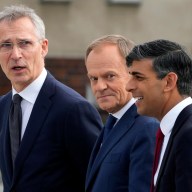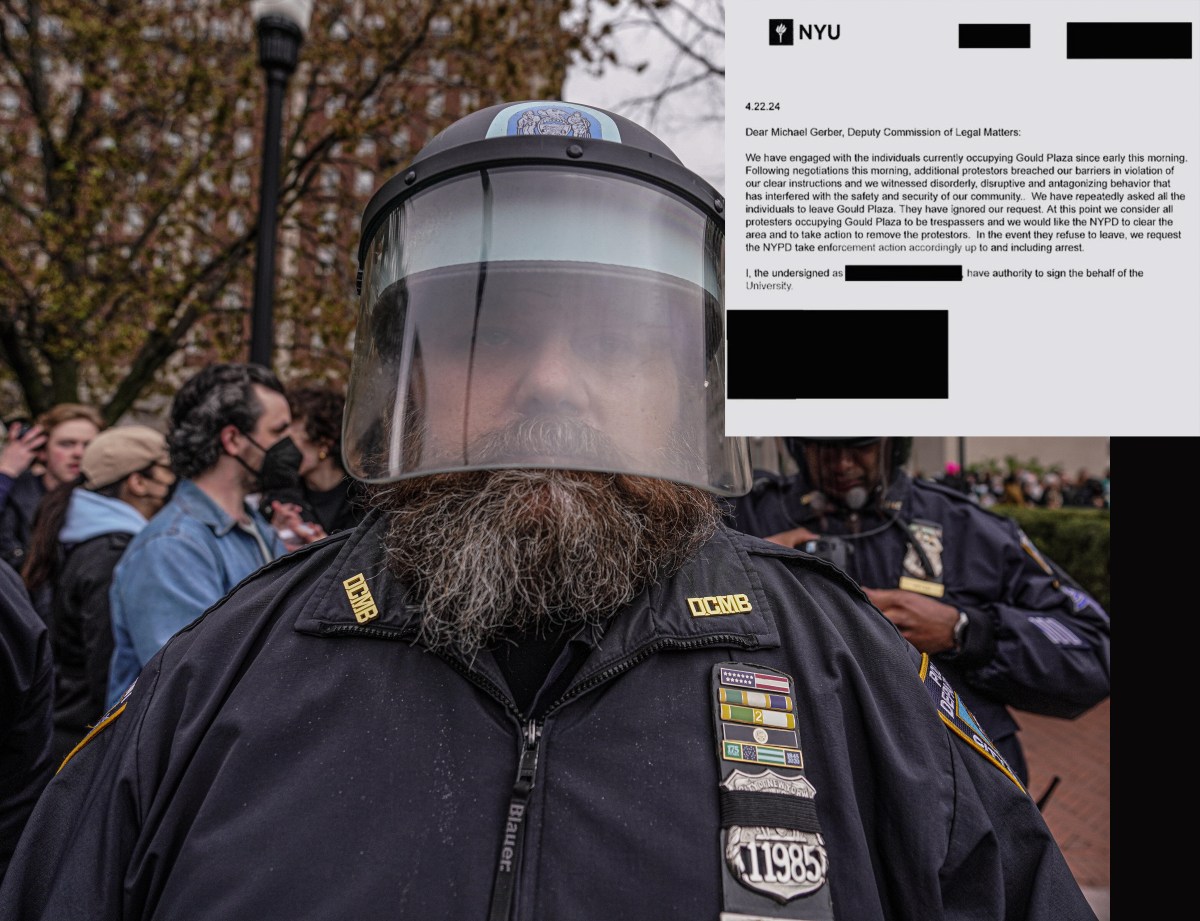TORONTO – Liberal Leader Michael Ignatieff will support Ontario’s controversial tax harmonization scheme if he becomes the next prime minister, Premier Dalton McGuinty said Tuesday, triggering a day-long scramble in Ignatieff’s camp to explain his stance.
However, at the end of the day, Ignatieff’s spokeswoman still wouldn’t say where he stood on the single sales tax, only that there is no deal with McGuinty.
“He’s leader of the Opposition and what he said is, ‘I’m not in any position to make any arrangements with anyone, any province or any person, nor would I,”‘ said Jill Fairbrother.
“To say that he would, or that he hinted or … any of that leaves the wrong impression entirely.”
McGuinty set off the firestorm earlier in the day when he said Ignatieff agreed to support Ontario’s HST plans.
“We have secured Mr. Ignatieff’s commitment to moving ahead with the single sales tax should he earn the privilege of serving Canadians in government,” he said.
Under pressure from the federal Liberals, McGuinty later acknowledged that there was no formal agreement.
“However, the clear impression I had was that the federal Liberal Party was supportive of the HST in Ontario,” he said in a statement.
Fairbrother said she doesn’t know where McGuinty got that impression.
“We haven’t unveiled our economic platform,” she said. “We would do that during an election.”
Ontario and British Columbia’s plans to merge their sales taxes with the federal GST next July requires legislation from both levels of government, which could be derailed if a national election was called.
In his earlier comments, McGuinty said he was confident that both provinces will obtain the “necessary commitments” to move to a single sales tax, no matter who formed the next government in Ottawa.
B.C. Premier Gordon Campbell said he hasn’t talked to the federal Liberals about the blended tax, but expects that any new government would live up to the commitments made by its predecessors.
“We have an agreement with the federal government on how we’ll proceed with this,” he said in Victoria. “It’s not with one party or another, it’s with the federal government.”
McGuinty’s remarks were buttressed by suggestions from Ignatieff’s own party that he wouldn’t try to dissuade the provinces from harmonization, even though he’s spoken out against it.
Ujjal Dosanjh, a former B.C. premier who has crusaded against the blended tax as a Vancouver MP, said a Liberal government wouldn’t encourage the provinces to reconsider their harmonization plans.
“It’s really up to them ultimately,” he said in an interview. “They know my position but I would not interfere in provincial politics … If I were (still) the premier I wouldn’t want any federal politician telling me what to do.”
Ontario Finance Minister Dwight Duncan also confirmed he’d received assurances from his federal cousins that the $4.3 billion Ontario was promised to ease the transition was safe if they won the next election.
They did make some suggestions on how the tax could be better implemented, he added.
Ignatieff, who has withdrawn his party’s support of the minority Conservative government, denounced what he called the “Harper Sales Tax” while visiting B.C. two weeks ago.
He criticized the Tories for pushing harmonization during a recession, then trying to disavow its role in convincing Ontario and B.C. to move ahead with it.
“And we think that’s dishonest,” he said. “They’re fully implicated in this decision and they should take responsibility for it.”
The Tories quickly pounced on Ignatieff’s apparent support for the HST, calling it “calculated and “opportunistic.””
“Ignatieff is deliberately saying one thing to Ontarians while cutting the opposite deal behind closed doors,” Harper spokesman Dimitri Soudas said in an email.
Yet several federal Tories have also publicly distanced themselves from harmonization, saying Ottawa has nothing to do with it, even though it’s kicking in billions of dollars to make it happen.
Dosanjh insists there’s no inconsistency in Ignatieff’s position.
“It’s absolutely inappropriate and cruel for a federal government to be pushing harmonization in the middle of a deep recession when people are in economic difficulty,” he said.
“That is not to say that if we form government somehow an agreement that’s been entered into by a previous federal government with a province, that we would wreck that or destroy that.”
The Ontario Progressive Conservatives have made similar arguments, saying they oppose tax harmonization while remaining silent on whether they’ll repeal it.
Deputy Opposition leader Christine Elliott, who is married to federal Finance Minister Jim Flaherty, was put in the awkward position Tuesday of explaining why her party won’t commit to undoing the deal her husband has enthusiastically supported.
“The Ontario public are speaking very loud and clear about this and they want to see significant change. And we want to stop it in its tracks because we’re representing what the people want to see.”
The contentious scheme has many politicians performing rhetorical contortions to maintain a safe distance from the kind of disaster that befell other governments which switched to the single tax.
The public uproar over harmonization in Nova Scotia and Saskatchewan in the 1990s contributed to the defeat of both governments. Saskatchewan later repealed the change.
Harmonization, which will increase the cost of many items previously exempt from the provincial levy, has now struck a nerve with consumers in Ontario and B.C.
Thousands of residents have signed petitions protesting the tax change, which will hike the cost of coffee, funerals and even haircuts.
Ignatieff looks “foolish” by supporting a policy he publicly condemned, but so do the Tory MPs who are trying to wash their hands of the reform that Flaherty eagerly pushed for more than a year, said Henry Jacek, a politics professor at Hamilton’s McMaster University.
“Politics can sometimes be very funny, and this is a case where it’s very humorous, how people are twisting and turning themselves,” he said.
Ignatieff is likely supporting the HST because he needs both McGuinty’s and Campbell’s Liberal troops for the next election campaign, Jacek said.
“The federal Liberals are badly organized, they really need the provincial Liberals,” he said.
Flaherty is providing $4.3 billion to Ontario and $1.6 billion to B.C. to make the change.
Nova Scotia, New Brunswick and Newfoundland and Labrador harmonized their sales taxes with the federal GST more than 10 years ago.
Quebec partially harmonized its sales tax system and Alberta has no provincial tax, leaving Saskatchewan, Manitoba and Prince Edward Island as the remaining holdout provinces.
-With files from Joan Bryden in Ottawa and Dirk Meissner in Victoria, B.C.
















